Meet the next College of EU Commissioners: what’s the agenda for tech?
We analyzed Ursula von der Leyen's mission letters to Commissioners, highlighting key agenda points for European tech over five years, focusing on their impact on competitiveness, consumers, innovation, and public administrations in EU Member States.
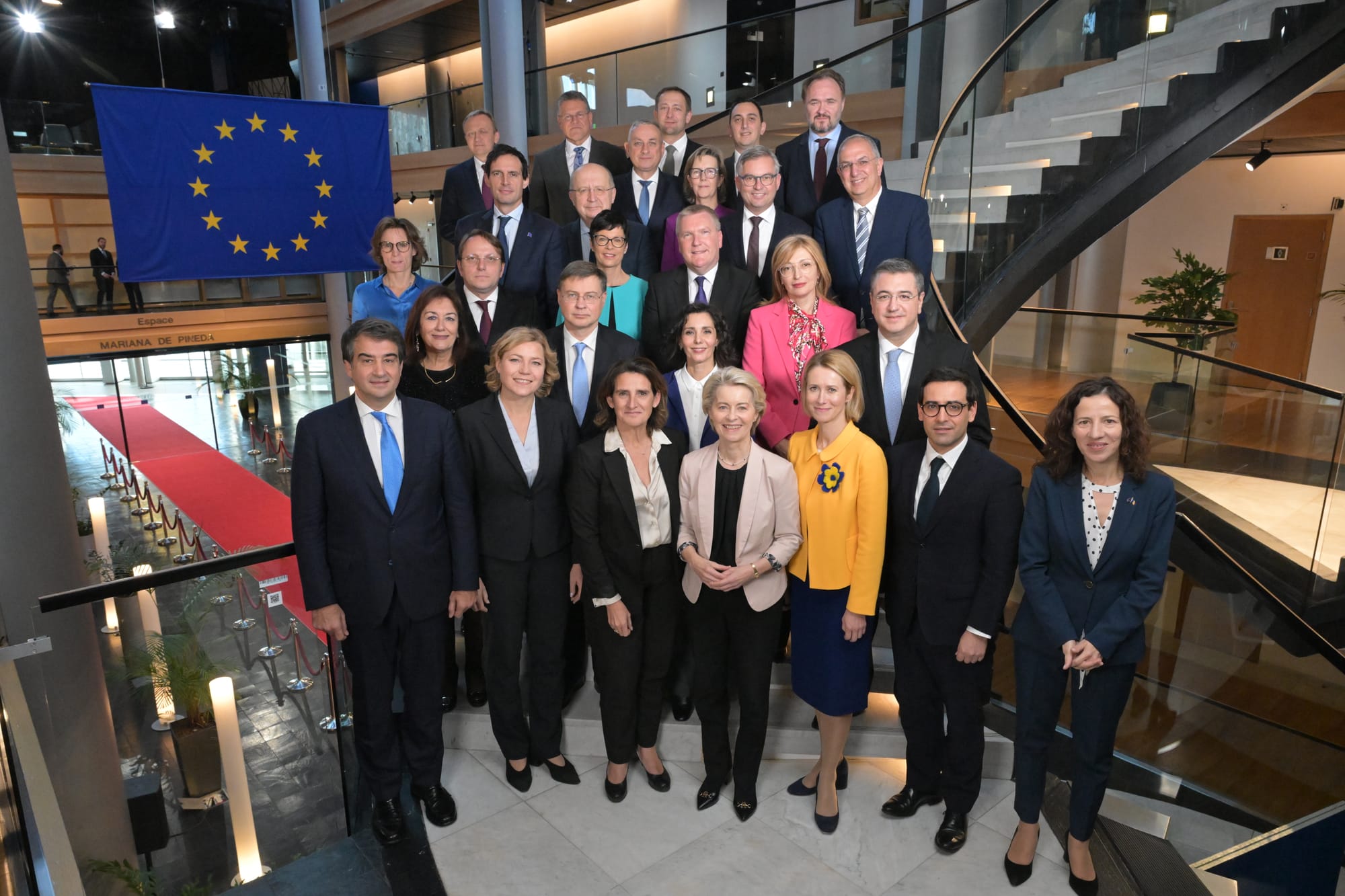
Yesterday, the European Parliament approved the new College of Commissioners, set to begin work on December 1, 2024. The President of the Commission, Ursula von der Leyen, once again emphasized the importance of boosting European competitiveness through a concept she calls the Competitiveness Compass, which will focus on three main areas:
1) closing the innovation gap with the US and China
2) developing a joint plan for decarbonization and competitiveness
3) enhancing security and reducing dependencies.
We reviewed the mission letters Ursula von der Leyen previously sent to the Commissioners and analyzed the agenda points relevant for European tech sector for the next five years, focusing on its’ potential impact on European competitiveness, consumers, innovation and EU’s Member State public administrations.
Teresa Ribera Rodríguez - Executive Vice-President for Clean, Just and Competitive Transition, Spain
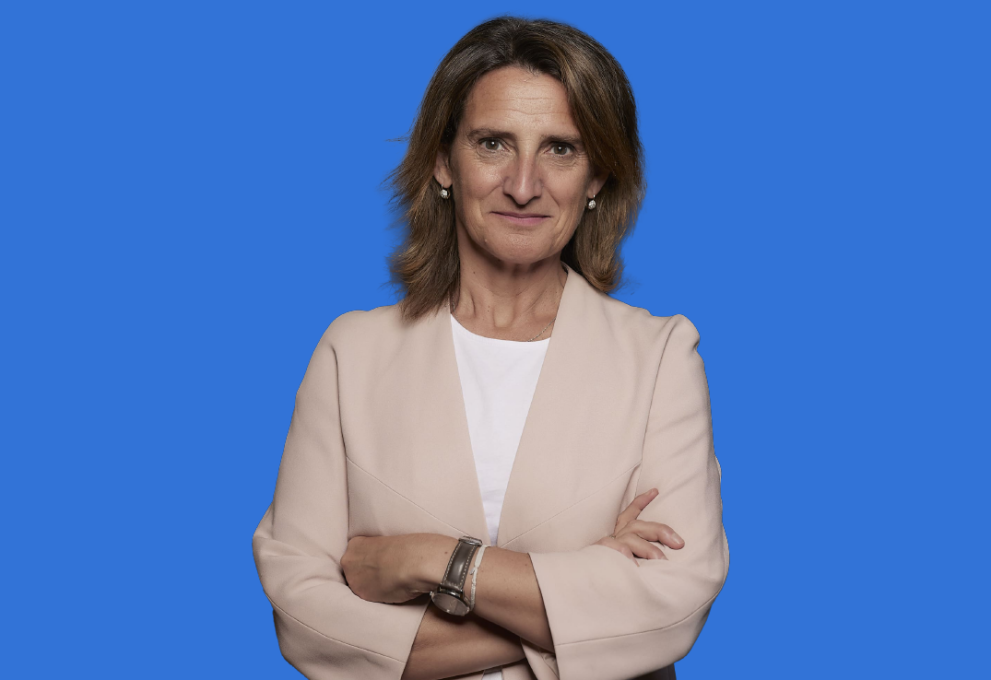
The Spanish Executive Vice President, Ribera Rodriguez, was tasked with revising competition rules to enable European companies to scale globally. For the tech and telecom sectors, this would (probably) involve allowing European telecom companies to merge easier and, consequently, scale:
To support this, Europe needs a new approach to competition policy – one that is more supportive of companies scaling up in global markets, allows European businesses and consumers to reap all the benefits of effective competition and is better geared to our common goals, including decarbonisation and a just transition.
Among other things, Ursula von der Leyen’s mission letter also highlights the need to "address risks of killer acquisitions by foreign companies," which is a significant message for tech sector. Most of European tech startups are either acquired by or choose to collaborate with U.S. companies after achieving scale.
You will focus on the particular challenges facing SMEs and small midcaps, notably to address risks of killer acquisitions from foreign companies seeking to eliminate them as a possible source of future competition.
Theresa Ribera Rodriguez is also tasked with addressing the issue of "abuse of dominant position" - a term that has been applied liberally and flexibly in the EU in recent years, often leaving big companies facing regulatory uncertainty:
You will focus action on the most distortive aids and practices, notably anticompetitive agreements and abuse of dominant position. You will work to accelerate authorisation of compatible aids and transactions in strategic fields, and to ensure timely clarity for economic operators that cooperate in such sectors, for example. when pooling data for artificial intelligence experimentation.
Lastly, the Spanish Executive Vice President will be tasked with addressing the needs of digital markets, including ensuring the enforcement of measures under the Digital Markets Act:
You will address the challenges and dynamics of digital markets, including platform economies and data-driven business models. You will ensure the Commission takes rapid and effective enforcement actions under the Digital Markets Act.
Henna Virkkunen - Executive Vice-President for Tech Sovereignty, Security and Democracy, Finland

Finnish Executive Vice-President Henna Virkkunen has many challenges ahead. One of her tasks is to speed up progress toward the EU’s Digital Decade targets for 2030. This won’t be easy, as recent progress reports show the EU is falling behind on many of these goals:
You will oversee our path towards reaching Europe's 2030 Digital Decade targets. I would like you to lead the review of the implementation strategy and digital targets in 2026, looking at where updates are needed in light of technological developments, cybersecurity concerns and our wider productivity and sustainability goals.
Henna Virkkunen is also tasked with combating harmful disinformation. Hopefully, this will involve both reactive and proactive measures. While digital service platforms are now heavily regulated, more focus is needed on proactive efforts, such as educating European society to improve critical thinking and resilience.
You should also pay close attention to strengthening the resilience and the functioning our democracy, notably through the new European Democracy Shield and work to counter harmful disinformation which can cause rifts in society and weaken our democracy
Boosting AI application aligns with Draghi’s recommendations to promote vertical integration of AI in EU industries through the Apply AI strategy. Henna Virkkunen is also tasked with advancing the EU’s supercomputing ambitions by ensuring access through the AI Factories initiative and launching the European AI Research Council.
You will lead work on boosting Artificial Intelligence innovation, making it safer and more trustworthy. In the first 100 days, you will ensure access to tailored supercomputing capacity for AI start-ups and industry through the AI Factories initiative. You will develop, with Member States, industry and civil society, an Apply AI Strategy to boost new industrial uses of AI and improve delivery of public services. You will help set up a European AI Research Council.
Only one sentence in von der Leyen's mission letter, though very important - Henna Virkkunen is also tasked with developing a unified cloud policy for public administrations. While Mario Draghi acknowledged indirectly that the EU cannot replicate platforms like Google Cloud, Microsoft Azure, or AWS, and should instead focus on creating limited carveouts for EU-based cloud vendors, it remains to be seen how far the European commitment to an ‘EU-tech-first’ approach can shape cloud policy:
You will also develop a single EU-wide cloud policy for public administrations and public procurement
The updates to the Digital Networks Act - possibly one of the most important legislative initiatives of the upcoming year - are also on Henna Virkkunen’s to-do list. The upcoming Polish Presidency of the Council of the EU plans to revisit the DNA early next year, and the Commission will face a tough challenge in balancing the need to boost investments in telecom infrastructure without undermining the digital economy in the EU. We previously wrote about the Digital Networks Act here and here.
I want you to take forward the Commission’s work to improve access to secure, fast, and reliable connectivity, as part of a broader strategy for connected collaborative computing. To this end, you should work on a new Digital Networks Act to help boost secure high-speed broadband, both fixed and wireless. You should incentivise and encourage investments in digital infrastructure, taking into account responses to the Commission’s White Paper of February 2024.
Henna Virkkunen will also be responsible for enforcing the DSA and DMA, directly engaging with regulated entities. Let’s hope there will be no more tweet exchanges with representatives of the now U.S. "Doge Department" on social media platforms and that regulatory certainty will be ensured for VLOPs as well as for SMEs:
You will ensure the Commission takes rapid and effective enforcement actions under the Digital Services Act and the Digital Markets Act whenever necessary. You will establish long-term compliance dialogues with the regulated entities and contribute to the work on disinformation, notably as part of the European Democracy Shield.
While Henna Virkkunen is also tasked with "making the most of the EU wallet" it’s worth noting that the EU wallet must first take a concrete form. Fortunately, Member States appear to have recently reached a compromise, allowing the EU Member States to move forward with the implementation soon:
You will be responsible for deploying digital public infrastructure, notably by making the most of the EU wallet, and ensure businesses can fully use the technology to enable them to speed up and simplify operations and reduce administrative costs.
European startups and SMEs have been vocal about how the EU’s Data Strategy rules complicate the development of data-driven businesses, with some opting to relocate to pursue their business models. Henna Virkkunen faces a complicated task: enhancing data sharing between businesses and public administrations across the EU while adhering to existing data rules and practices. We can only wish her the best of luck:
You will present a European Data Union Strategy drawing on existing data rules to ensure a simplified, clear and coherent legal framework for businesses and administrations to share data seamlessly and at scale, while respecting high privacy and security standards.
Henna Virkkunen will also have to tackle the Pandora’s box of e-commerce platforms regulation, proposing and implementing new rules to address issues such as "dark patterns," "addictive design," and "online profiling." Undoubtedly, this will be a challenging journey, as the European digital marketing sector, as well as consumers currently benefit from the existing practices:
You will lead the work to tackle challenges with e-commerce platforms, working with other Members of College. <...> You will help combat unethical techniques online, such as dark patterns, marketing by social media influencers, the addictive design of digital products and online profiling, especially when consumer vulnerabilities are exploited for commercial purposes.
Last but not least, Finnish Executive Vice-President Henna Virkkunen will need to advance the ambition of the "Brussels effect" in AI and cybersecurity - a challenging task given the current geopolitical landscape
You will work to promote EU digital norms and standards internationally and to ensure a leading role for the EU in global digital governance, in particular for AI and cybersecurity.
Stéphane Séjourné - Executive Vice-President for Prosperity and Industrial Strategy, France
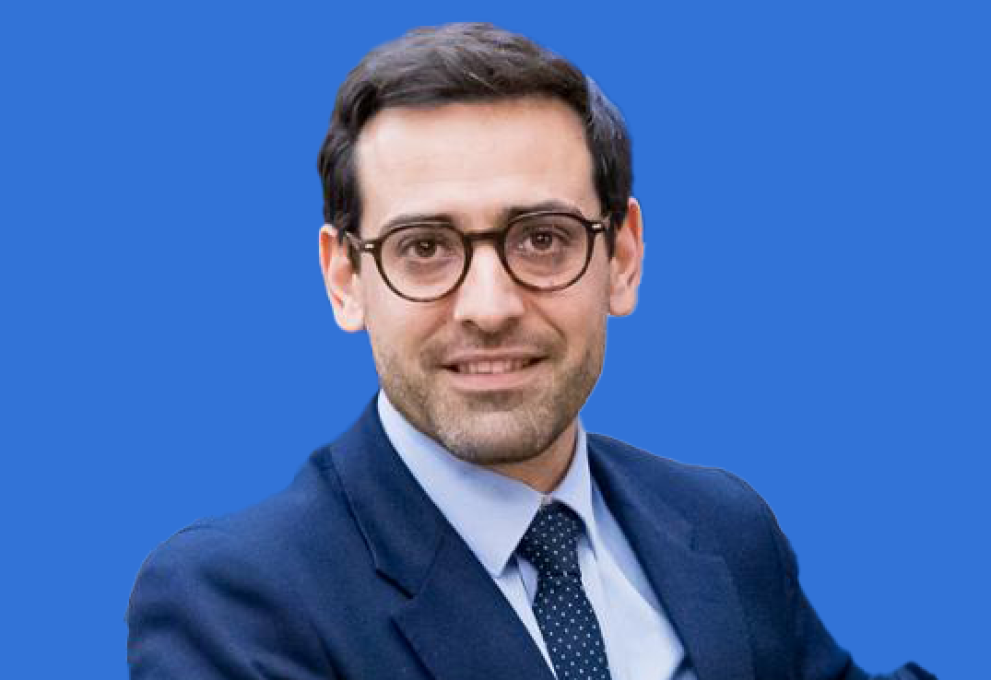
The French successor to Thierry Breton, Stéphane Séjourné, is tasked with accelerating the integration of the Single Market, among other responsibilities.
One particularly important task that will impact both the EU’s tech industry and public administrations is the revision of the Public Procurement Directives. Ursula von der Leyen instructed Mr. Séjourné to update these directives with the dual aim of simplifying the rules while also prioritizing European products - a strong, protectionist signal. If this approach is pursued too aggressively, it could make digital transformation projects (which are already very complicated and lengthy) for public administrations across the EU even more challenging:
You will revise the Public Procurement Directives to help ensure security of supply for certain vital technologies, products and services, while simplifying the rules and reducing administrative burden. It should enable preference for European products in public procurement for certain strategic sectors and technologies.
Roxana Mînzatu - Executive Vice-President for People, Skills and Preparedness, Romania
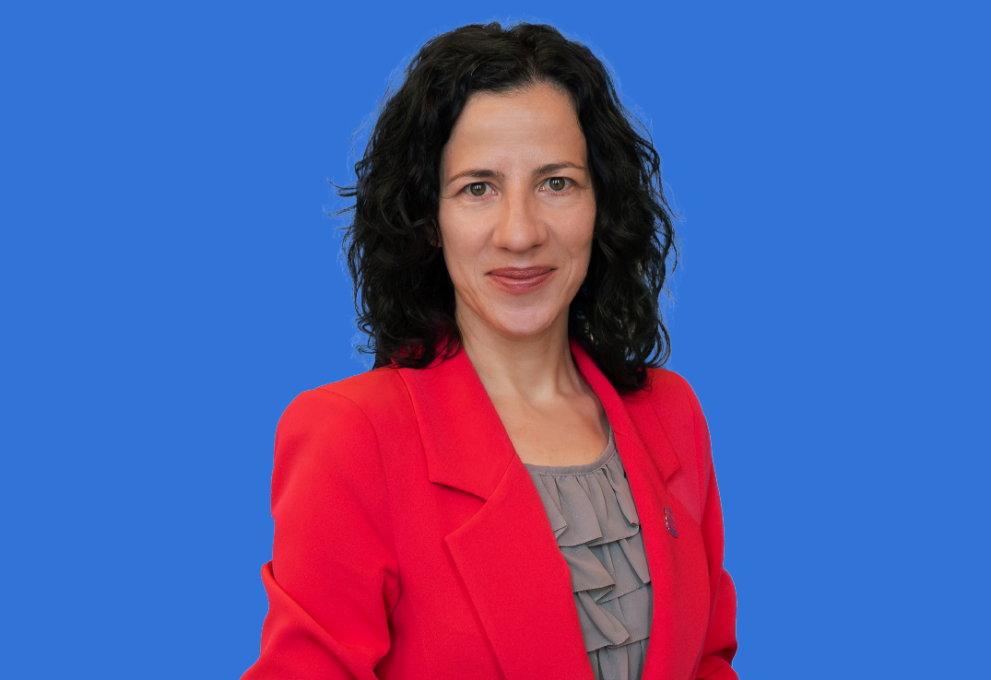
The Romanian Executive Vice President for People, Skills, and Preparedness is tasked with assessing the impact of digitalization on the workforce, introducing a "right to disconnect" and more:
I would also like you to focus on the impact of digitalisation in the world of work. This should notably include an initiative on algorithmic management. You will also propose to introduce a right to disconnect.
Valdis Dombrovskis - Commissioner for Economy and Productivity, Implementation and Simplification, Latvia

Latvian Executive Vice President Valdis Dombrovskis, possibly the most modest and demure Commissioner of all, is tasked with accelerating the development of the digital euro project, which will certainly make waves across European privacy communities:
I would like you to make quick progress on the digital euro project, both online and offline, while ensuring access to euro cash at all times.
Valdis Dombrovskis is also tasked with cutting red tape, reducing administrative burden and implementing a new implementation hurdle test ‘Reality Check’ for a ‘selection of stakeholders”:
You will also implement a new consultation approach, called Reality Checks, that will collect first-hand information from a selection of stakeholders in given areas to identify hurdles they face when implementing EU rules.
You will also make proposals on how to reduce administrative and reporting burden, working in dialogue with all stakeholders and EU institutions.
You will strengthen and ensure full compliance with the Commission’s better regulation standards in the preparation of new initiatives with significant impacts, including delegated and implementing acts. You will oversee the implementation of the SME and competitiveness check. You will continue to strengthen the application of the “one in, one out” rule when proposing new legislation.
Jozef Síkela - Commissioner for International Partnerships, Czechia

Czech Commissioner Sikela is tasked with boosting the ‘Global Gateway' - a €300 billion European initiative aimed at investing in infrastructure projects worldwide as an alternative to China’s Belt and Road Initiative.
The Global Gateway is rarely discussed outside diplomatic and development project management circles, yet it is a highly significant matter that, if addressed correctly, could both enhance European competitiveness globally and strengthen European regulatory standards in a very tangible way:
You will strengthen Global Gateway to ensure it puts forward the most attractive integrated offer to our partners including on infrastructure investment, trade and macro-economic support. Your task will be to take Global Gateway from start- up to scale-up and ensure the programme’s role in supporting global connectivity and investment until 2027 and beyond. You will refine and accelerate the offer the EU makes to its partners and ensure faster disbursement of funds where possible.
I would also like you to invest in making Global Gateway a trusted and quality brand throughout the world. I would like you to put in place an effective and visible tracking and reporting of Global Gateway, including on the mobilisation of private funding, and measuring impact and results of investments, notably when it comes to human rights and political freedoms.
Magnus Brunner - Commissioner for Internal Affairs and Migration, Austria

Austrian Commissioner Brunner will have little time to warm up to his new position and will need to immediately address both the European privacy community and the advanced agenda on Child Sexual Abuse Material (CSAM), also nicknamed as 'Chat Control' which could effectively signal the end of encryption on social media platforms as we know it today:
You will lead the work to better protect children against sexual abuse online and offline, including by working with the European Parliament and Council to complete negotiations and implement legislative proposals.
Michael McGrath - Commissioner for Democracy, Justice, and the Rule of Law, Ireland
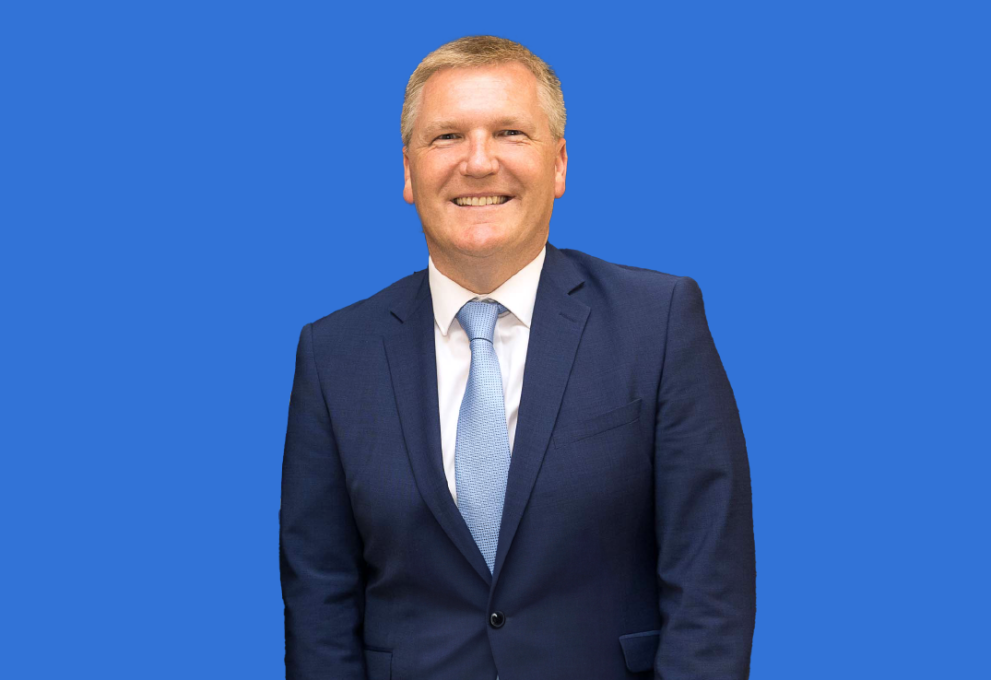
Irish Commissioner McGrath will also face one of the most challenging tasks: updating the next Consumer Agenda for 2025–2030 and developing a Digital Fairness Act, which could fundamentally impact the way e-commerce operates in Europe:
I would like you to develop an updated common policy framework and present the next Consumer Agenda 2025-2030, notably looking at how to protect vulnerable consumers and assess the need to update legislation and ensure enforcement. As part of this, you should also propose a new Action Plan on consumers in the Single Market to ensure consumers do not face unfair discrimination, keep benefits when crossing borders and are protected when buying goods or services.
I would like you to focus on the impact and opportunities of digital technologies on consumers and our justice system. You will develop a Digital Fairness Act to tackle unethical techniques and commercial practices related to dark patterns, marketing by social media influencers, the addictive design of digital products and online profiling, especially when consumer vulnerabilities are exploited for commercial purposes.

